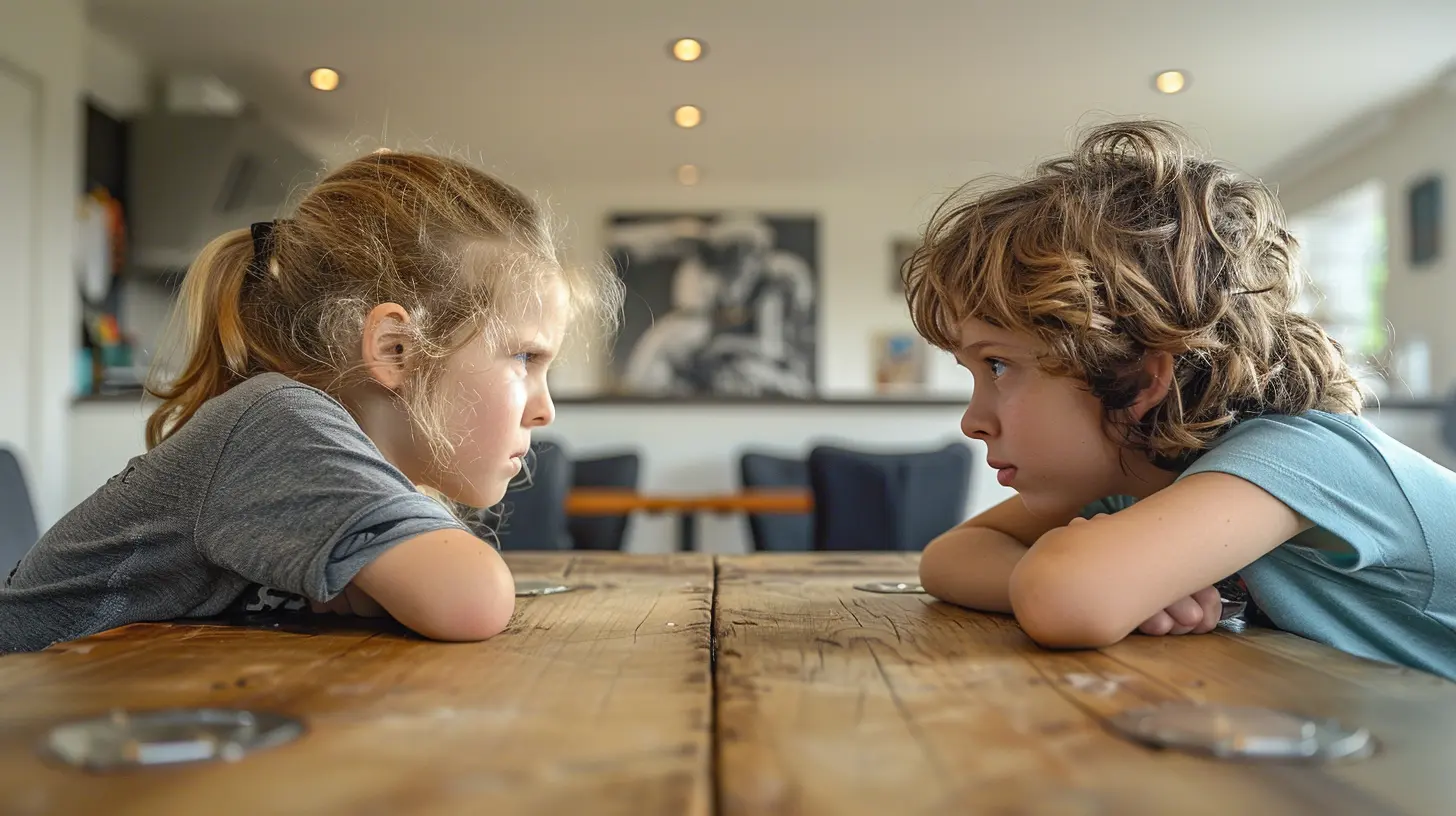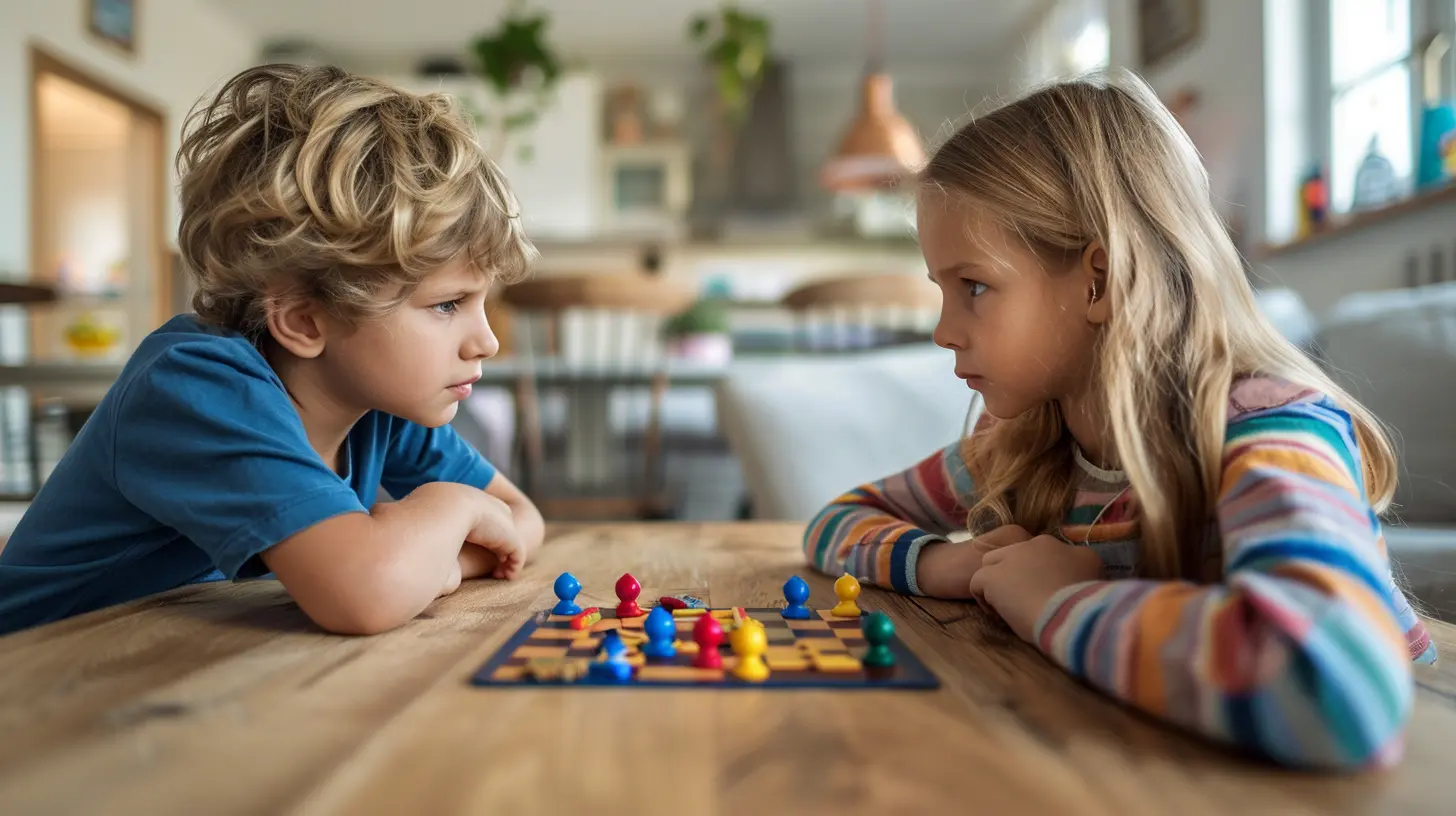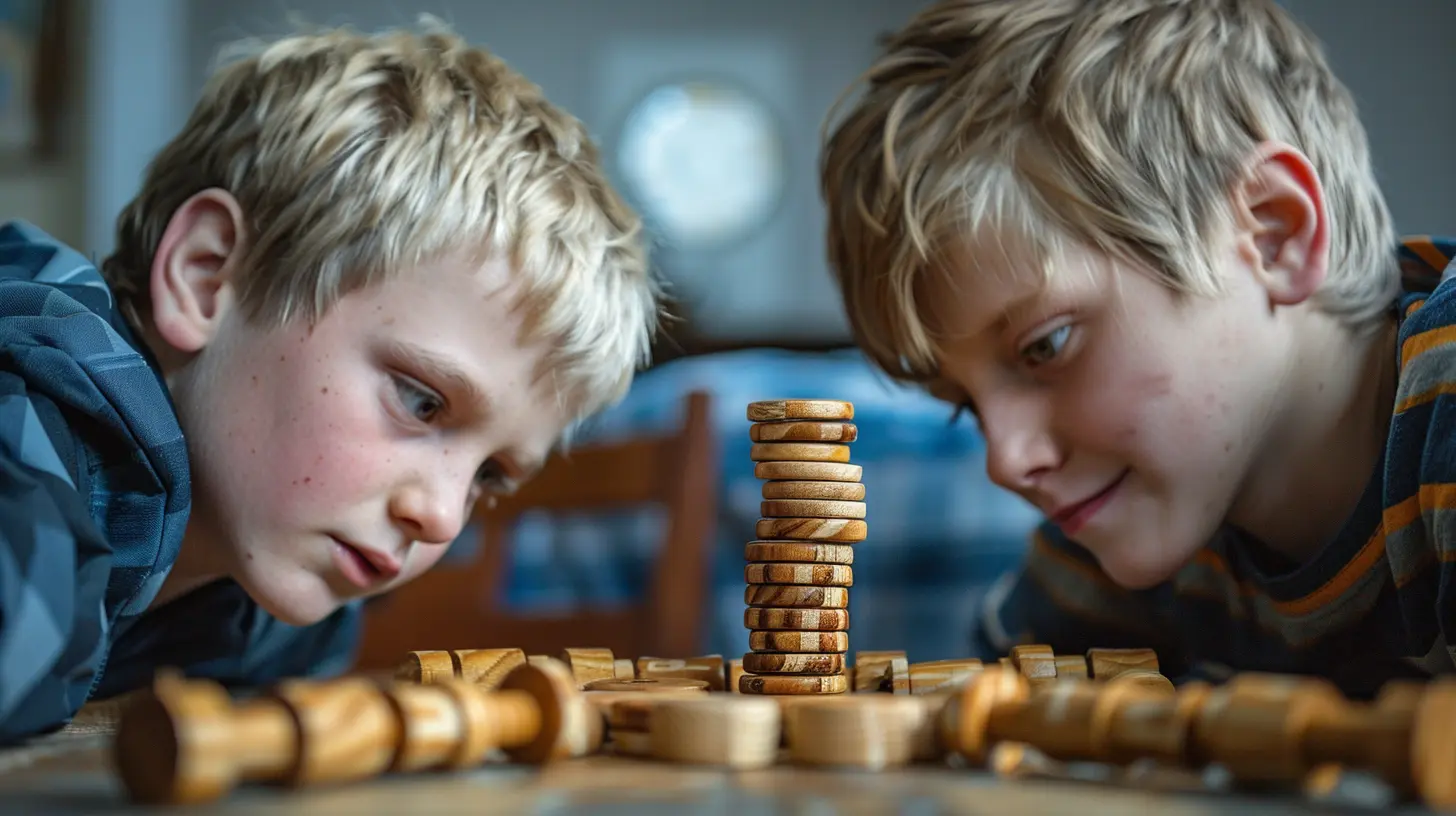Family Games That Promote Collaboration Between Siblings
1 August 2025
Let’s be honest — getting siblings to work together without turning your living room into a battlefield is pretty much a daily challenge. One minute they’re best friends, the next they’re arguing over who gets the last cookie. But what if we told you there’s a fun and sneaky way to help them bond, solve problems together, and build teamwork? Yep, we're talking about family games that foster collaboration.
Sure, competition is fun — but cooperation? That's where the magic happens. These games aren’t just tools for entertainment; they’re bridges that connect your kids in meaningful ways. Whether it’s a rainy afternoon, a weekend gathering, or a tech-free night, adding collaborative games to your routine can be a total game-changer.
In this article, we’re diving into the best family games that promote teamwork, patience, and empathy among siblings. Buckle up — and maybe grab some snacks — because family game night is about to level up.
Why Collaborative Games Matter
Before we get into the fun stuff, let’s talk about the “why.”Sibling dynamics are often a mix of love, rivalry, and everything in between. While competition can spark motivation, it can also lead to resentment. Collaborative games flip the script. Instead of fighting against each other, your kids learn to work as a team toward a common goal.
These games teach skills like:
- Communication – Talking through strategies and sharing ideas
- Patience – Waiting their turn and listening to each other
- Empathy – Understanding each other’s perspectives
- Problem-solving – Tackling challenges as a unit
Think of it as teamwork training wrapped in fun packaging.
1. Forbidden Island – A Race Against the Clock
Have adventurous kids who love the idea of saving the world (or an island)? Then Forbidden Island is a must-try. This is a cooperative game where players are part of a team searching for hidden treasures on a sinking island.Each sibling takes on a unique role, and they must strategize together to survive and escape. No one can succeed alone — teamwork is the only way out. It’s like a family version of Indiana Jones meets Mission Impossible.
Perfect for ages: 8+
Best part: It’s suspenseful without being stressful.
2. Outfoxed! – The Whodunit for Little Detectives
Got younger kids? Outfoxed! is a fun mystery game where players work together to solve the case of a missing pie — yes, seriously. Players gather clues and eliminate suspects using a clever decoder tool. Think Clue, but age-appropriate and super cute.Siblings have to cooperate to figure out which fox is the thief. And guess what? There’s zero room for arguing because getting to the answer is a real team effort.
Perfect for ages: 5–8
Best part: Encourages critical thinking in a non-competitive format.
3. Keep Talking and Nobody Explodes – Bomb Defusing Chaos
This one’s a wild ride. One person sees a virtual bomb, and the others have the manual to defuse it. The catch? They can’t see what the bomb looks like. This game is all about communication — explaining, listening, and making quick decisions under pressure.It’s like a family version of working the drive-thru on a super busy night — everyone’s got to keep cool and stay sharp.
Perfect for ages: 10+
Best part: Hilarious chaos that turns into teamwork magic.
4. Zombie Kidz Evolution – Team Up Against the Undead
Don’t let the zombies fool you — Zombie Kidz Evolution is an absolute gem for siblings. It's a cooperative legacy-style board game where players team up to protect their school from zombies.The more they play, the more the game changes and evolves. Stickers, new characters, and secret envelopes keep the game fresh and exciting. And since progress depends on how well they work together, it’s perfect for building sibling synergy.
Perfect for ages: 7+
Best part: It turns repeat gameplay into something to look forward to.
5. Minecraft (Co-op Mode) – Building Worlds Together
If your kids are screen-inclined, why not use that to your advantage? Minecraft in co-op mode lets siblings build entire worlds together — castles, cities, theme parks, you name it. They’ll need to plan, share resources, and sometimes compromise on design (yes, even over lava moats and rainbow sheep).You'd be amazed at how much collaboration happens in those pixelated blocks.
Perfect for ages: 6+
Best part: Teaches digital teamwork while fueling creativity.
6. The Floor Is Lava – Classic Imaginative Chaos
You don’t need to spend a dime on this one — just rearrange some cushions, shout “THE FLOOR IS LAVA!” and let the fun begin.To make it more collaborative, set challenges where siblings have to help each other across the “lava” without touching the floor.
It’s basic. It’s silly. And it’s gold for teamwork.
Perfect for ages: 4+
Best part: Zero setup, maximum fun.
7. Pandemic – Saving Humanity Together
Talk about teamwork under serious pressure. In Pandemic, players are disease control specialists trying to stop global outbreaks. Every player has a role with different strengths, and they must plan carefully together.It’s like a crash course in collaboration and critical thinking — all in an epic board game.
Perfect for ages: 10+
Best part: Big stakes, big rewards — when siblings win together, the feeling is unbeatable.
8. Junk Art – Building Balance and Bonds
This game is part art project, part strategy, and part Jenga. Siblings must use oddly shaped pieces to build a sculpture in each round. The catch? Everyone builds from the same limited resources.It requires creativity, compromise, and a good laugh when things go hilariously wrong.
Perfect for ages: 8+
Best part: Great for hands-on learning and constructive fun.
9. Cook Together – Kitchen Challenge
Want to turn your kitchen into a mini Top Chef arena? Give your kids a cooking task to complete together — think “make a sandwich tower” or “bake cookies using teamwork only.”This isn’t a board game, but it’s one of the most effective real-life cooperative games ever. You’ll see them plan, assign roles, and maybe even clean up (ok, maybe a stretch).
Perfect for ages: 6+
Best part: They build life skills while having fun.
10. Escape Room In A Box – Think Fast, Act Together
If your crew likes puzzles, escape room games at home are a blast. You can buy physical kits or download printable versions online.Siblings must solve riddles, unlock clues, and escape the room (aka, your living room) before time runs out. It’s like a family mystery movie minus the dramatic soundtrack.
Perfect for ages: 9+
Best part: Makes them feel like code-breaking geniuses — together.
Tips to Make Game Night a Collaboration Win
Ok — so you’ve got your list. But how do you actually make sure the games don’t turn into arguments over rules or meltdowns about losing?Here are a few simple tips:
- Rotate roles: Let siblings take turns being “leader” or go-to for decisions.
- Set the tone: Remind them it’s about fun and working together, not winning.
- Build in rewards: Celebrate their teamwork — maybe with a family treat!
- Be patient: If this is new territory, expect some hiccups. Encourage progress, not perfection.
Remember, the point isn’t just playing the game — it’s growing together through it.
Final Thoughts
Let’s face it — raising siblings who genuinely like each other (most of the time) is no small feat. But by slipping in games that make them work together, we can sprinkle some magic into that sibling bond.Collaborative games aren’t just feel-good fluff — they’re tools that build essential life skills like communication, empathy, and teamwork. They teach your kids to focus less on beating each other and more on building something together. Whether they’re defusing virtual bombs, escaping rooms, or defending imaginary islands, they’re learning how to navigate challenges as a team.
So next time you're thinking about what to do on a lazy Sunday or a tech-free evening, grab one of these games, gather the crew, and dive into a little healthy sibling collaboration.
Game night? More like growth night.
all images in this post were generated using AI tools
Category:
Sibling RivalryAuthor:

Karen Hurst
Discussion
rate this article
2 comments
Talia McAleer
Engaging in collaborative games not only strengthens sibling bonds but also fosters essential life skills. Prioritize playtime to nurture teamwork, communication, and problem-solving among your children. It’s a win-win!
November 18, 2025 at 6:02 PM

Karen Hurst
Thank you for your insightful comment! I completely agree—collaborative games are a fantastic way to enhance sibling relationships while building vital life skills.
Trixie Jenkins
This article offers fantastic insights into fostering collaboration among siblings through games. I appreciate the emphasis on teamwork and communication—elements that are essential not only for play but for building stronger family bonds. Thank you for sharing!
August 2, 2025 at 3:02 PM

Karen Hurst
Thank you for your thoughtful feedback! I'm glad you found the insights on teamwork and communication valuable for strengthening family bonds. Happy playing!


